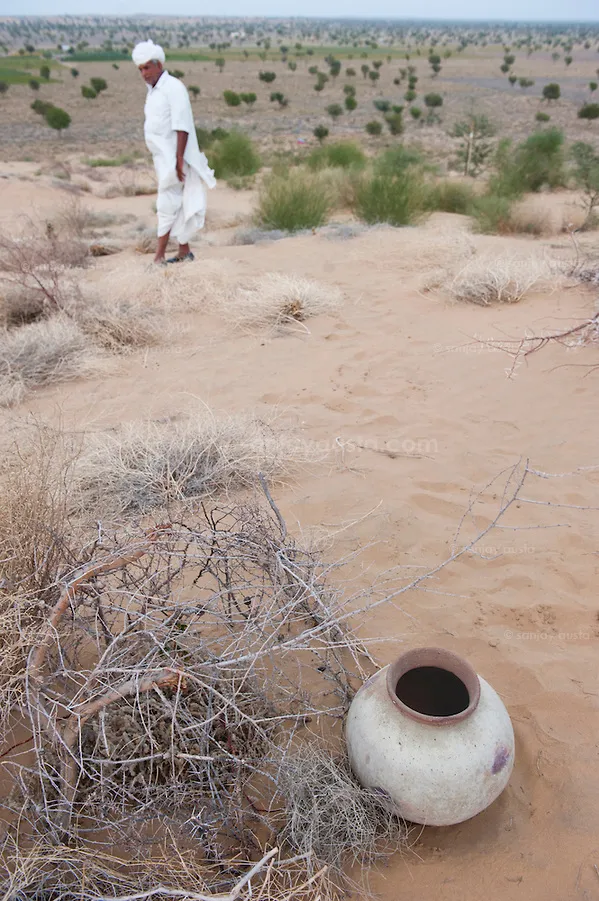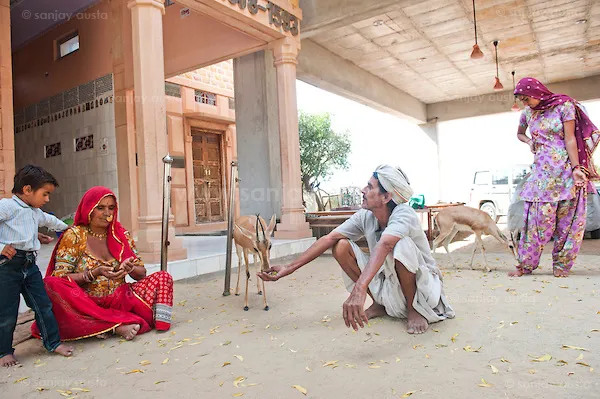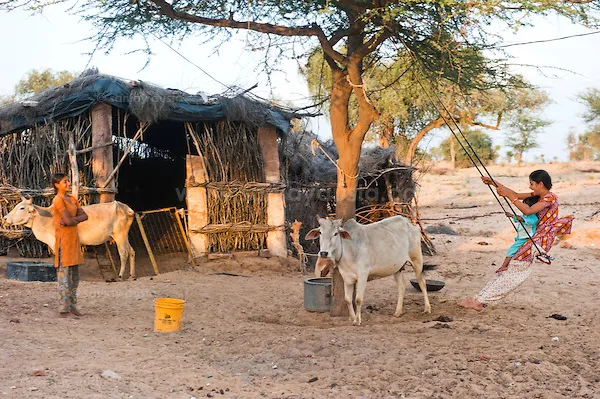Ranaram Bishnoi, the 75-year-old who stopped the march of the desert
Ekalkhori village is about 100 kms from Jodhpur, but it takes us more than five hours to get there. The light is fading fast but in this Bishnoi territory in Rajasthan, the driver has to make innumerable halts as the chinkaras, the black bucks, and squirrels drift languorously on the highway.

We have in the back seat a volunteer of the Bishnoi Tiger Force – a wildlife vigilante group in Jodhpur district; a menace to any poacher prowler in these part. He gives us the low-down on the daring animal rescues the force undertakes, battling gun-wielding poachers in the dead of night.
He also fills us in on the man from whom we are making this backbreaking journey across the arid Rajasthan plains. But there is nothing that prepares you for the septuagenarian environment crusader.
Ranaram Bishnoi is a tall handsome man in his mid-70s who takes his sobriquet of the 'tree man' rather seriously. No sooner we exchange greetings than he whisks us to the desert swathe where he’s planted over 27,000 trees turning it green. He has single-handedly stopped the march of the desert, which left to itself would have muzzled the farmlands adjoining it and beyond. The desert dunes now lie tamed and anchored to the roots of Ranaram’s trees. The indigenous trees he has planted are neem, rohida, kankeri, khejri, fig, bougainvillea and babool.

Ranaram has been planting these trees for some years now, drawing water from a nearby well and carrying it in an earthen pot on his shoulders to water the saplings.
The Bishnoi community to which Ranaram belongs is the forbearer of the Chipko movement, famous for its non-violent, tree-hugging protest against tree felling. In 1730, 363 Bishnoi men, women, and children were killed by a local king’s soldiers when they protested in this manner.
With such exemplars of environmental crusades before them, the Bishnois are driven to preserve and emulate their ancestors' legacy. Besides Rajasthan, the Bishnois are found in pockets of Punjab, Haryana, Uttar Pradesh and Madhya Pradesh and they practice their strict credo for wildlife and environmental protection everywhere. They have 29 tenants as laid down to them by their Guru Jambheshwar, out of which eight pertain to protecting and respecting wildlife and environment.

Bollywood actor Salman Khan had come in their crosshair in 1998 when he shot dead a black buck in a Jodhpur village during the filming of one of his films. The Bishnois not only gave chase but ensured that the actor was booked. He still faces charges for the crime in a Jodhpur court.
We climb the high dune behind Ranaram just in time to catch the saplings in the orange light of the setting sun.
Standing at this elevation, overlooking the fields and the villages beyond, you get a sense of Ranaram’s immense contribution. You also get a sense of his fortitude in planting saplings in the sand and watering them each day to breath life into them as it were. At his age, his relentless war against the tide of the desert is indeed commendable.
But Ranaram is unassumingly honest, he says,
It was for the environment of course, but it was also for my self-interest. My field is just under this dune and had I not planted these trees my field would have been the first to be consumed.
It is this honesty that defines him and it’s his simple, unstudied idea of ecology that endears you to him. “The plants and the animals were on the planet much before we landed here. They have more rights on the planet than us and if we cannot give that to them at least we can ensure we don’t destroy them in our greed,” he says.
His loose white shirt and dhoti -- the attire of an average Bishnoi -- flutters in the desert wind as he moves over the tree-dotted dunes with the pride of a patriarch. He stops with childlike enthusiasm to show you evidence of birds adopting his trees for nesting and shelter. And then strides fast across the sands to show you the latest saplings he has planted.
He hems in all the fresh saplings with dried thorn bushes to prevent cattle or wildlife from eating them up. But it is men, he says, who are the biggest danger to the trees. He says,
There is no end to our greed, but we must realize that without these plants and animals we just cannot survive. There are no thorn bushes or fences that can keep away a man from destroying the ecology. Only some awareness can help.







